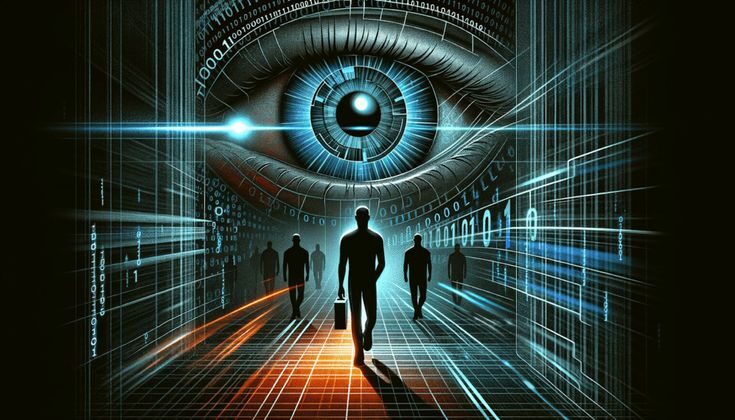June 13, 2025 l Manila Times

We hear it all the time: “AI won’t replace people, it will only help them.” It sounds comforting. But the truth is, AI is already replacing people and pretending otherwise is a form of denial that could leave many unprepared. The shift isn’t coming. It’s here. We’re living in it. And whether we choose to see it or not, the signs are everywhere.
Take the media industry. In early 2024, Gannett, the company behind hundreds of local newspapers in the US, laid off journalists and began using AI tools to generate sports recaps and finance stories. Some of those stories were clunky, sure, but they cost nothing after the initial setup. Meanwhile, real reporters were shown the door.
BuzzFeed, once a digital media darling, also turned to AI to generate quizzes and listicles — right before cutting staff. Their message was loud, even if they didn’t say it directly: machines are cheaper, faster and easier to manage than people.
It’s not just writing jobs. IBM’s CEO openly admitted in 2023 that they were pausing hiring for thousands of back-office roles because those jobs were expected to be automated by AI within five years. Imagine that — thousands of jobs, not because of economic downturn or performance issues, but because the company saw AI as a better long-term bet.
And yet, many companies keep insisting AI is “just a tool” like a fancy spreadsheet or a better calculator. I’ve sat in meetings where executives said, almost proudly, that AI would “augment” workers, not replace them. But what does augment really mean when the same meeting ends with a plan to cut customer service agents because a chatbot now handles 80 percent of queries?
This denial is comforting because it delays the hard conversation. It allows leaders to experiment with automation while keeping a clean conscience. It also keeps employees from asking too many questions — until it’s too late. But history has already shown us where this road goes.
In early 19th century England, when machines started weaving textiles faster and cheaper than humans could, thousands of workers were displaced. The Luddites, who protested and smashed these machines, weren’t scared of technology. They were scared of what it was doing to their livelihoods. The myth that they hated progress is misleading. What they hated was being replaced without a plan for their survival.
We’re in a similar place now. AI isn’t some future threat. It’s today’s business decision. It’s already reshaping industries in ways that quietly remove the human from the process. Some companies do this openly. Duolingo, the language learning app, laid off a significant portion of their contractor workforce after switching to AI-powered content creation. They didn’t hide it. They said AI made things more efficient, so they didn’t need as many humans. Simple math.
The biggest danger isn’t just that people are losing jobs. It’s that too many leaders are pretending it’s not happening. They talk about “reskilling” and “upskilling” while pushing employees out the door. They promise AI will free people up to do “more meaningful work,” but often don’t define what that means or provide the tools to make that transition.
Even in creative industries, the writing is on the wall. Voice actors are being replaced by AI clones. Designers are watching AI generate images that used to take hours in seconds. Coders are seeing AI suggest, and sometimes fully write, blocks of code. Some adapt. Others are simply removed.
I’m not saying AI is evil. I’ve used it. I’ve benefited from it. It can be amazing. But we can’t keep lying to ourselves. We can’t keep pretending that just because a tool can be helpful, it won’t also be used to cut costs in the most obvious way: by replacing people.
The deeper problem is that this denial prevents action. If we don’t acknowledge the replacement is happening, we don’t prepare for it. We don’t retrain workers. We don’t rethink economic structures. We don’t even talk honestly about what happens to someone when their skills are suddenly worthless because a machine can do it faster.
Companies have every incentive to downplay this. Investors love efficiency. AI doesn’t complain, doesn’t sleep, doesn’t ask for health insurance. It just works. So when a company chooses AI over people, it’s not personal. It’s profit. But the impact is deeply personal for those who are told their work no longer matters.
We’ve been here before. The textile machines didn’t just change how cloth was made — they changed what kinds of jobs existed, who had power and who got left behind. AI is doing the same thing. Like then, the real danger isn’t technology. It’s pretending the consequences aren’t real.
So let’s drop the polite talk. Let’s stop reassuring ourselves with empty phrases. AI is replacing jobs. It already has. And if we want to protect people, we need to stop denying that simple fact. Only then can we start having the harder and more important conversations about what comes next.
***The views expressed herein are his own and do not necessarily reflect the opinion of his office as well as FINEX. For comments, email rey.lugtu@hungryworkhorse.com. Photo is from Pinterest.

